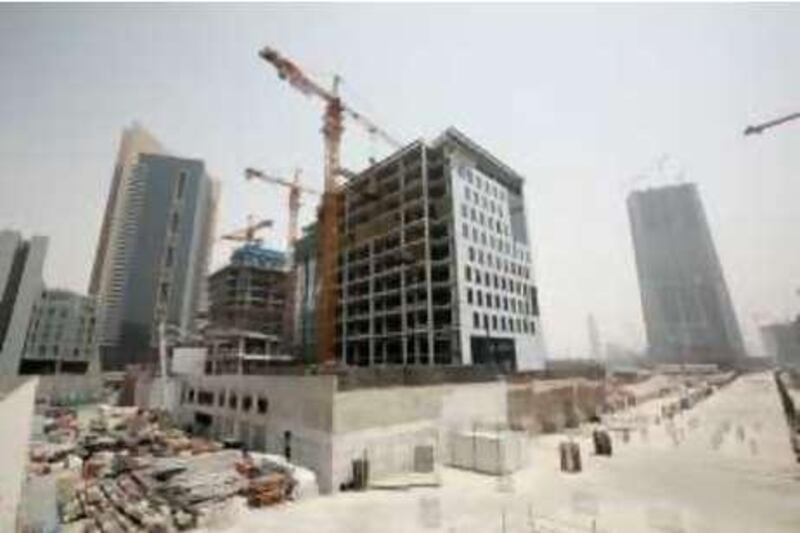A move to introduce uniform rental rates in Dubai with an official index of prices could help landlords raise those of rent-capped properties to nearer market levels. Officials at Dubai Land Department and RERA, the emirates' property regulator, are to announce the details of a new rent cap law after Eid al Fitr. They refused to disclose whether the cap will be raised or lowered from the current five per cent, but suggested a "new mechanism" would also be introduced.
Officials have completed an index of rental rates for different areas of the city, based on the findings of surveys of landlords, tenants and estate agents, which could be introduced by the start of 2009. They refused to give further details of how the index would work, but it was understood that it would allow landlords to have tenants appear at a hearing if the rent cap meant they could not raise the price to near the market rate.
The index would give the Rent Committee a set of benchmark figures to use when resolving disputes over rental increases. New arrivals in Dubai say they would welcome some indication of prices throughout the city. However, existing tenants fear rents held below market prices by the cap could rise because of the index. Rent caps have been in place in Dubai since 2006 when landlords were prohibited from increasing rent in the first two years of a lease and could only increase the rate by 15 per cent per year thereafter. This restriction was cut to seven per cent in 2007 and five per cent this year.
Despite the regulations, average rents in the emirate climbed 22 per cent in the 12 months starting June 2007, according to data from Asteco, a property services company. This was because the cap only applied to renewed contracts. A new contract can be set as high as the tenant is willing to pay, a fact that has encouraged landlords to evict existing tenants on flimsy excuses, allowing them to set a new rate for the next occupant.
Iseeb Rehman, the managing director of Sherwoods Property Consultants, said rents should be frozen for the next two years, despite the potential hit to landlords' rental income. "People are just setting rents as they please and organisations have no choice but to house their staff and suffer the impact on their operation costs," he said. "If there was a rent freeze for two years then you would see enough availability in the market and fewer cases of landlords throwing people out and increasing rents for the next tenants."
Although the completion of projects such as Discovery Gardens, International City and Dubai Marina means new apartments are coming onto the market, many owners have kept them empty, knowing that if units are occupied they are harder to sell, he said. RERA officials have also announced that the use of standardised sales contracts in Dubai would soon become mandatory, which is expected to restrict the ability of freelance estate agents to do business.
RERA said property developers and the Government's property registration offices would only accept sales that were completed using the new official contracts. Access to these computerised forms will be restricted to licensed estate agents who have been issued with a password. Tenants applying to the Dubai Water and Electricity Company (DEWA) for utilities connections would have to present this standardised rental contract.
Another major complaint among Dubai residents - that developers launch sales for a new project, but start construction work months or even years later - is also being addressed by the Dubai Land Department. Under new regulations, property developers will be unable to begin sales for a new project until they have first secured a host of approvals from bodies such as Dubai Municipality, DEWA, the Land Department and the master developer of a building site, proving that they are ready to start construction. The developer must then begin construction within six months of the sales launch.
"Everything should be ready with all the approvals from the authorities, then you can start [sales for] a project," said Marwan bin Ghalita, the chief executive of RERA. Developers who failed to comply with the requirements would have to provide the Land Department with a valid reason or face penalties, he added. * The National






